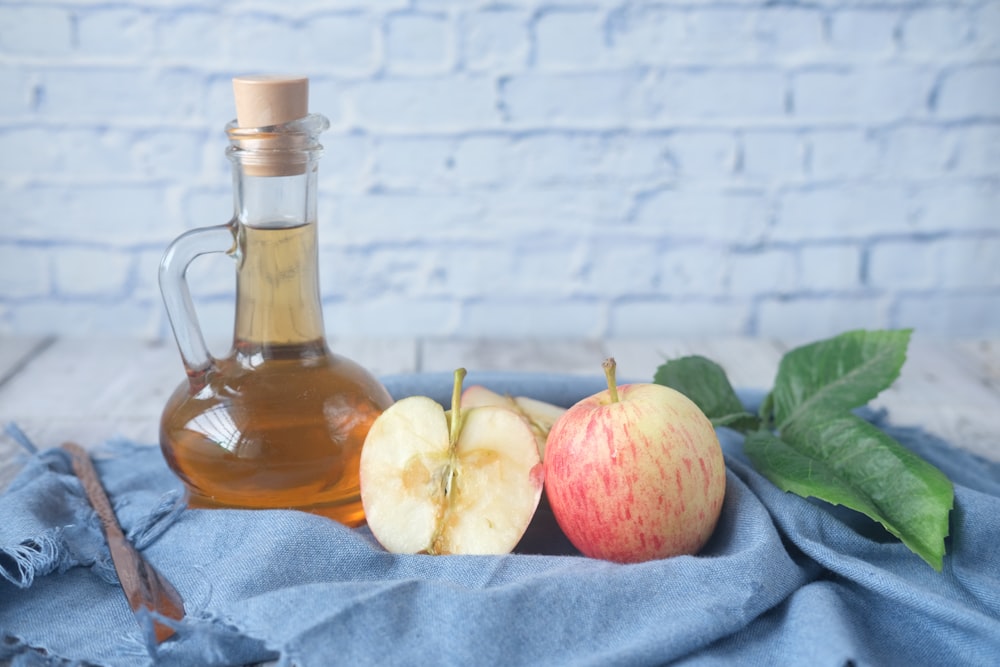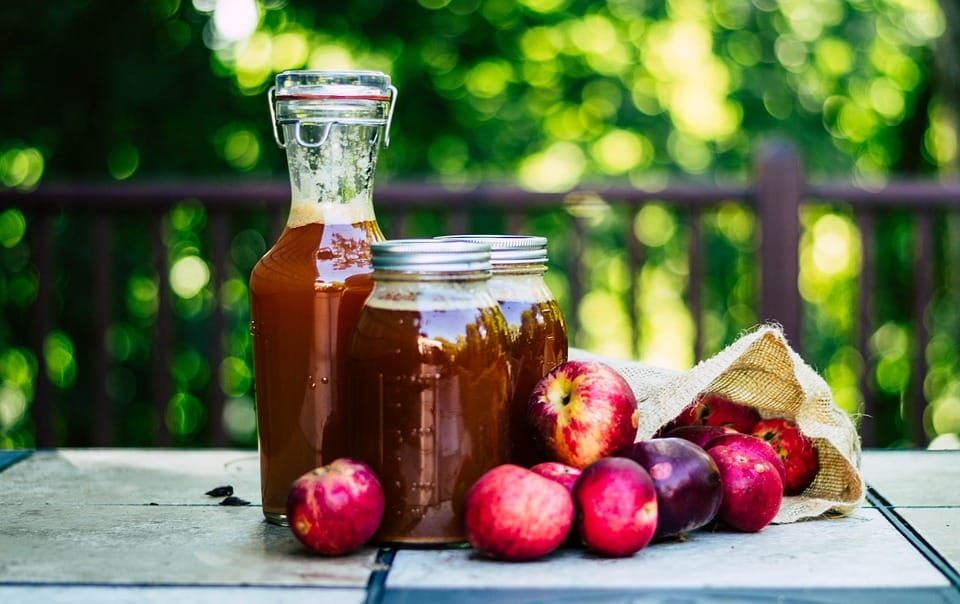One of the most popular questions people ask is what apple cider tastes like. The answer can be different for different people, but there are some common characteristics of the beverage that most people seem to enjoy. Cider is typically fermented and is made by mixing apple juice with yeast. However, some companies add spices and other flavorings, affecting the taste. While unpasteurized juice has a sweeter taste, some people prefer the earthier flavor of cider.
It is not the same as juice for starters, and it’s unfiltered, making it more flavorful. It is considered the grown-up version of apple juice. And if you have never tried it, here are some tips to help you get the right flavor. Whichever kind you’d prefer, you should know what apple cider tastes like. Try adding apple-infused vinegar to your favorite recipes for those looking for a delicious way to add some extra taste to their diet.
What is Apple cider?
Apple cider (sometimes known as sweet cider, soft cider, or simply cider) is a non-alcoholic beverage prepared from apples unfiltered, unsweetened, and unpasteurized in the United States and Canada. Although it is commonly referred to as “cider” in the United States, it is not confused with the alcoholic beverage known as cider in other countries and “hard cider” in the United States. It’s known as hazy apple juice outside of the United States and Canada to distinguish it from clearer, filtered apple juice, and hard cider.
Cider is made by fermenting fruit. Generally, apple juice is unpasteurized, and hard ciders are fermented and contain added spices. Some people like their apple juice to be sweet and sour, while others enjoy the earthier taste of cider. But if you’re looking for a healthier option, try fresh, unpasteurized cider! It’s sure to satisfy any craving you have for a sweet drink!
What does Apple cider taste like?
Apple cider has a sweet, crisp flavor with the crisp autumn air and foliage. This classic autumn beverage can be served hot or cold, giving it a versatile treat that everyone can enjoy.
Apple cider is made by blending apple juice with yeast. It resembles wine and can be taxed as a wine. But it’s not as bad as it sounds. A glass of cider can even make you look like a wine! The process is similar to that of winemaking, and many companies make apple cider to have a similar color and taste. As long as the apples are fresh, there’s no reason to worry about how the alcoholic drink will turn out. Its taste is similar to that of wine, but it’s more tart.
Apple cider is an acidic beverage made by heating apples. The raw juice is usually green and slightly carbonated. It is not bitter, but it does smell like vinegar. Its acidic nature makes it easy to drink, especially for people with a sweet tooth. A glass of cider has a distinctly strong odor. Its taste is sharp and bitter, but it’s not necessarily what you’d expect from apple juice. Its odor doesn’t smell like apples, but it’s more like a sour, fermented apple juice.
What are the benefits of Apple cider?
Acetic acid is found in apple cider vinegar. Bacteria, as well as lactic, citric, and malic acids, are present. The vinegar’s acidic flavor comes from these acids. Apple cider vinegar is thought to be beneficial to your health, and the following is what the research indicates regarding its advantages.
- Vinegar’s acetic acid may inhibit enzymes that aid in starch digestion. Your blood sugar levels may spike after eating starchy meals like bread, pasta, and rice. As a result, ingesting apple cider vinegar may result in a lower blood sugar surge following a starchy meal.
- According to weight loss advocates, taking vinegar before or with a meal may help you feel fuller faster and lose weight. Throughout 12 weeks, a small study published in 2018 followed the weight loss of two groups of adults, and both groups consumed fewer calories than before. A daily dose of 30 milliliters of apple cider vinegar was also given to one group. When consuming apple cider vinegar for weight loss, people tend to use more of it, and some people even use it as a supplement.
- Other Skin Injuries and Sunburn- Mild sunburns are commonly treated with a cool water compress, a cool bath, aloe gel, or a moisturizer. Others swear by the benefits of apple cider vinegar, and it can be put into a cool bath or combined with cool water and sprayed on the affected areas to relieve pain. Avoiding the face is a bright idea.
- There isn’t much evidence that apple cider vinegar can help you recover from a sunburn. It does, however, have potent antibacterial effects, and it may aid in preventing skin infections brought on by sunburn and other types of skin damage. Apple cider vinegar should not be applied to the skin in high concentrations or total power, and it should also be avoided for more severe burns.
Is too much Apple cider dangerous?
Apple cider vinegar, however, has been linked to several adverse side effects. This is especially true when taken in enormous amounts.
While tiny doses are generally safe and healthy, excessive consumption can be detrimental and deadly.
1. Stomach emptying takes longer than usual.
2. Negative effects on the digestive system
3. Potassium deficiency and bone loss
4. Tooth enamel erosion
5. Throat irritation
6. Burns to the skin
7. Interactions between drugs
How to safely consume Apple cider vinegar?
Following these broad rules, most people can safely eat average amounts of apple cider vinegar:
- Consume in moderation. Start with a tiny amount and work your way up to 2 teaspoons (30 mL) every day, diluted in water, depending on your tolerance.
- Reduce the amount of acetic acid that your teeth are exposed to. Drink the vinegar with a straw after diluting it in water.
- Rinse your mouth with water. After taking it, rinse it with water. Wait 30 minutes before brushing your teeth to avoid further enamel damage.
- If you have gastroparesis, you should avoid it. Avoid or use only 1 teaspoon (5 mL) of apple cider vinegar with water or salad dressing.
- Keep allergies in mind. Apple cider vinegar allergies are uncommon, but stop taking it right once and contact your doctor if you do have one.
What is the difference between Apple cider and wine?
The process of making cider is similar to that of making wine, with the addition of yeast. While the fermentation process can be slightly different for every company, the result is cider. The difference is that the method used in making cider can vary, and it can have a more alcoholic taste or a more acidic one. And of course, the difference between the two is in the consistency of the vinegar, which is the main factor that distinguishes a good cider from a bad one.
How to store Apple cider?
It is packed in glass bottles, contains antioxidants, and is a popular drink. And many brands of cider are now even made in the style of apple sauce and other beverages. A glass of cider is a clear, cloudy liquid heated to 190 degrees and then packaged.
- Tightly screw the cap on. Vinegar is a food that doesn’t go bad in the traditional sense. However, bacteria and even bugs can get inside it if the cap is left open, so ensure it’s tight before storing.
- Store the vinegar in a cool, dry place away from direct sunlight. To ensure your vinegar preserves its quality, store it somewhere it won’t be exposed to the sun. It’s a good idea to keep it in your pantry or cabinet.
- Choose a superb location to keep your vinegar. Vinegar is heat-sensitive, so keep it away from the stove and the warm side of the fridge. If feasible, choose a more fantastic location away from any heat source, such as the pantry.
- Do not dilute the vinegar in any way. The acidity level of apple cider vinegar prevents unwanted bacteria from forming, so it doesn’t go wrong. If you dilute it, the acidity level will drop, and it will no longer be shelf-stable. If you need to dilute apple cider vinegar, you can keep it in the refrigerator.
Conclusion
The primary difference between wine and cider is the way it’s made. The traditional method involves mixing apple juice with yeast, creating a clear, hazy drink that tastes similar to wine. It is also considered a beverage consumed by people of all ages. Although the two beverages have very different uses, both are made with apples. The most common kind of cider is filtered. Some people prefer the unfiltered variety, and it’s not considered a problem.
Cider is a fermented beverage made of apples. Unlike apple juice, it isn’t the same thing for everyone. The flavor of apple cider varies based on the type and style of cider you’re drinking. Its alcohol content can range from low to high, and the method you use can influence the overall flavor of the drink. The same applies to the process of making the drink. To make it more enjoyable, you must know what it’s made of.


